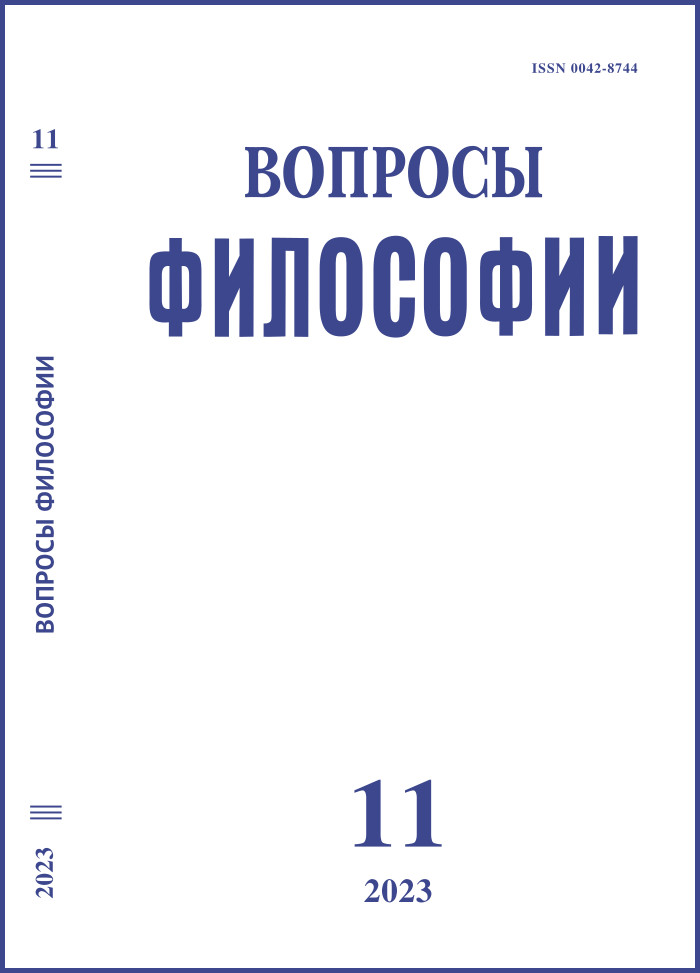Philosophical Anthropology at the Institute of Philosophy: 20s–80s of the 20th Century
DOI:
https://doi.org/10.21146/0042-8744-2023-11-137-148Keywords:
G.G. Shpet, Institute of Philosophy of the Academy of Sciences of the USSR, philosophy of man/philosophical anthropology, methodology of interdisciplinarity, Soviet sociocultural context, activity approach in the theory of knowledge, Western philosophical anthropology.Abstract
The article traces the connection between the formation of philosophical anthropology as an independent field of knowledge in the 20th century and the synthesis of human sciences in the space of interdisciplinarity. The philosophical anthropology in the USSR is considered at different stages of development from 1920s to 1980s. In the 1920s, the Institute of Scientific Philosophy, headed by G.G. Shpet (1921–1923), supported interdisciplinary projects for the study of human consciousness, the methodology of history, psychology and pedagogy, etc. It’s a person as an acting and understanding subject who became the center of research. For a long time, the philosophical problems of human being did not have their own area of institutionalization at the Institute of Philosophy and were included in other areas of philosophical knowledge: the theory of knowledge, aesthetics, ethics, the history of philosophy, sociocultural research, etc., while being under the pressure of Soviet ideology. The author considers the projects of 1960s and 1970s combined the activity concept of consciousness with psychological and pedagogical practices, the idea of a “unified science of man” formulated in the 70s. Since the mid 1970s–1980s study of the concepts of Western philosophical anthropology of the 20th century also contributed to the expansion of research problems. The author comes to the conclusion that by the beginning of the 1990s at the Institute of Philosophy the need for substantive independence of human philosophy as a scientific direction in the context of interdisciplinarity was realized.

